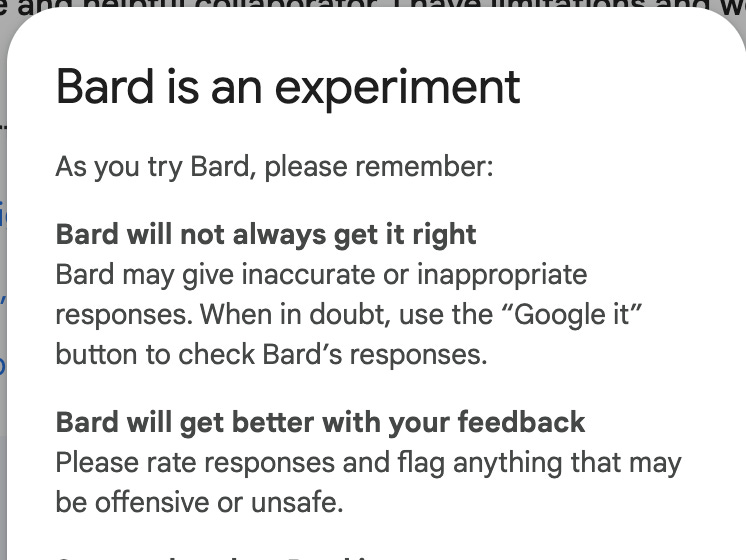BARD vs. OpenAI: The David vs Goliath roles have reversed in the AI world
The story of David and Goliath is a timeless tale of an underdog defeating a powerful adversary. Traditionally, David has been that underdog and Goliath the powerful incumbent with great brand, marketing and distribution muscle power.
In the world of artificial intelligence, the roles seem to have reversed, with Google now playing the role of David (the good guy) and OpenAI the role of Goliath, the villain.
Google, a tech giant known for its data-hungry approach, is now taking a cautious approach to AI implementation, while OpenAI is going all in.
Google’s BARD approach
Google has been at the forefront of AI research for years, with its DeepMind subsidiary making significant breakthroughs in the field. However, the company has also faced criticism for its data collection practices and the potential misuse of user data. But when it comes to AI, Google is taking a more cautious approach to AI implementation, with its BARD framework.
The entire launch post by Google can be summed up as:
Bard can make mistakes.
Bard is experimental.
Take it easy.
Because Google surely knows the tsunami this AI implementation can potentially bring owing to Google’s massive reach and presence in our lives. No other company has more user data than Google — right from your search to browsing to even location; and as a public company, they need to tread safely when it comes to AI.
In fact, let me put it this way that no other company understands the true societal impact of AI than Google.
Most companies that are using AI at scale (Microsoft, TikTok etc) are at a software level (i.e. controlled environment). Google is way deep — they own the search engine market and is the default gateway to Internet (Android) for the real world.
Thing is that PEOPLE TRUST GOOGLE way more than they even trust their partners 🤓
And that puts some responsibility on Google.
What about OpenAI?
OpenAI’s no holds BAR(RE)D bold vision
OpenAI, on the other hand, is going all-in with GPT-4 language model, which even the cofounder, Sam Altman believes will replace many jobs.
He has been warning the world, as the company knows that a widespread usage of AI will put the entire world in an unchartered territory.
OpenAI and its not-so-open rules
OpenAI has in the past flaunted its own rules — right from the very identity it started with (the company started as a non-profit) and is now a for-profit company.
OpenAI is anything but open about its A.I. tool’s inner workings.
OpenAI’s speedy go-to-market with GPT-4, the partnership with Microsoft and the speed of rollout is mind-boggling. Even though OpenAI’s implementation is anything but perfect, the team is leveraging its startup status to ride under the hood and maximize the reach (and mindshare).
In spite of the fact that the company very well knows that this speed of implementation is too risky and everybody around is unprepared, like any startup, OpenAI is doing everything it can to win the market, while Google is still figuring out the right thing to do.
The NextBigWhat of AI: Who Wins this?
The reversal of roles between Google and OpenAI highlights the challenges and opportunities in the field of AI. On the one hand, there is the potential for AI to transform industries and improve our lives in countless ways. On the other hand, there are significant risks associated with the technology, including unemployment, the potential for misuse and unintended consequences (e.g. fake news that can topple governments).
Google’s cautious approach to AI implementation is a recognition of these risks, and the need to ensure that the technology is used ethically and responsibly. OpenAI’s bold vision for safe AI is a recognition of the potential benefits of the technology and the need to develop it in a way that benefits humanity as a whole.
The future of AI will likely require a balance between these two approaches, with a focus on developing safe, transparent, and explainable AI that benefits society as a whole.
As AI continues to evolve and become more sophisticated, it will be important to continue to monitor its development and ensure that it is used for the greater good. The roles may have reversed between Google and OpenAI, but the challenges and opportunities in the field of AI remain as complex and as urgent as ever.
-Ashish Sinha.
(some parts of this essay is written using AI, image generated using Dall-E)




